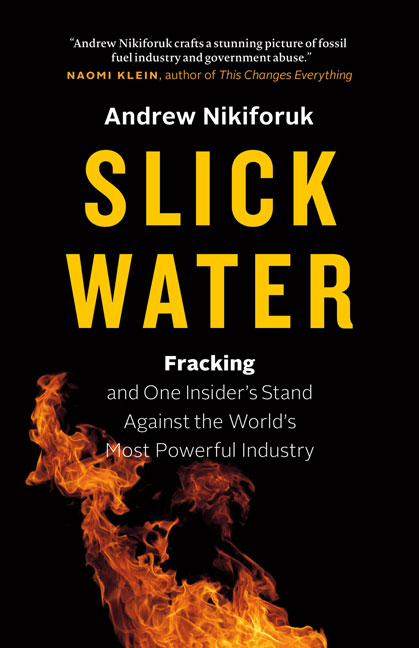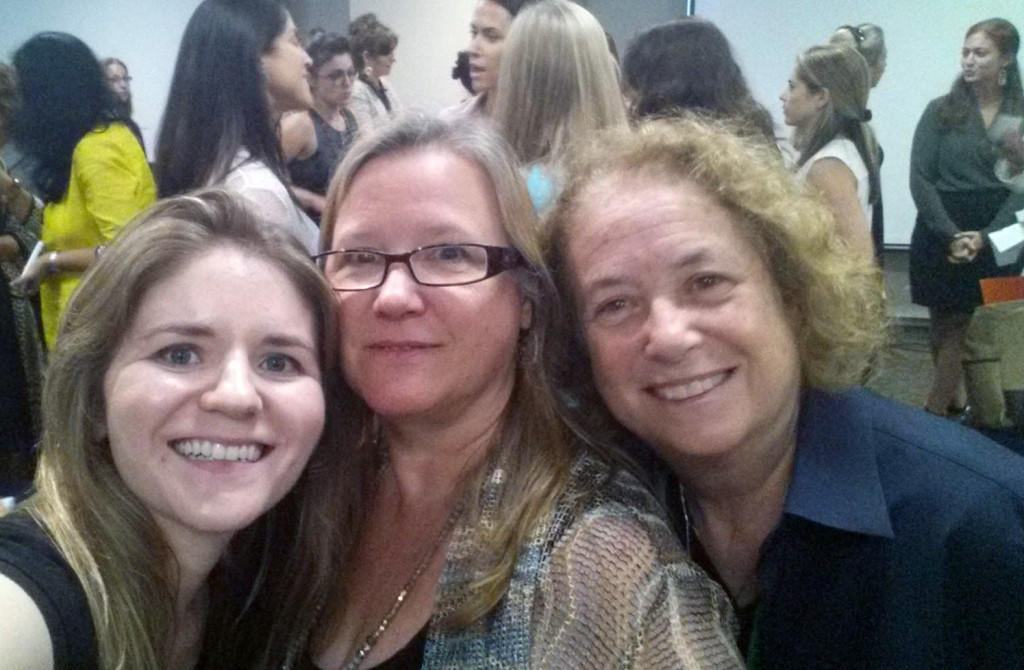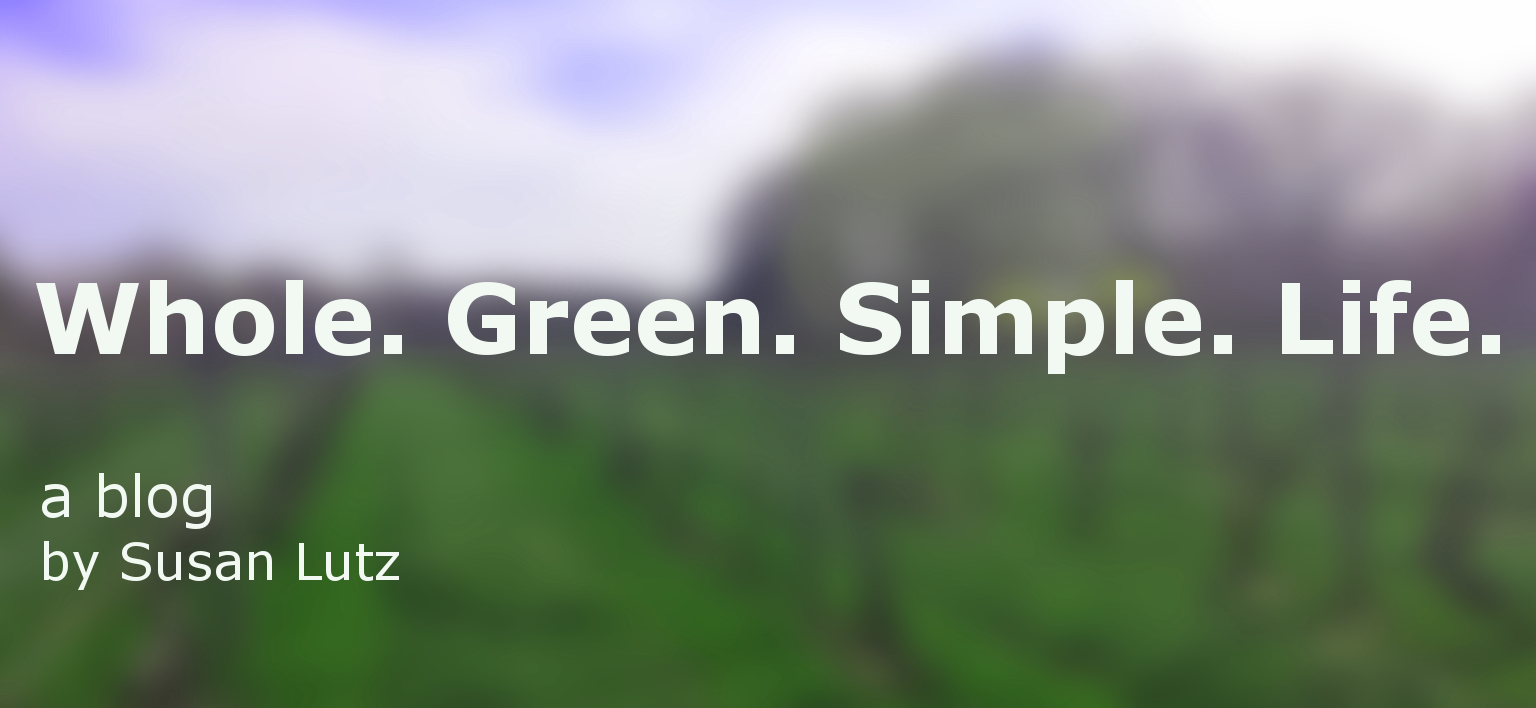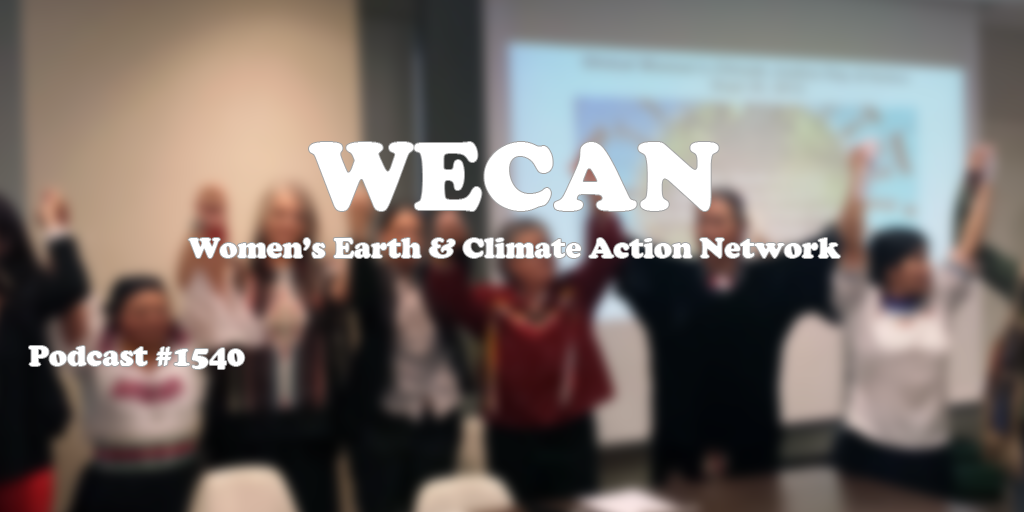Our guest this week, Harriet Shugarman, wrote the book, How to Talk to Your Kids About Climate Change:Turning Angst into Action, which provides tools and strategies for parents to explain the climate emergency to their children and galvanize positive action. Harriet is the Executive Director of ClimateMama, a professor of Climate Change and Society and World Sustainability, and Chair of the Climate Reality Project, NYC Metro Chapter. She is a nationally recognized influencer, connector, and trusted messenger for parents on solutions to our climate crisis. Harriet is a recipient of the prestigious Climate Reality Green Ring Award, and has been praised by Al Gore as “an outstanding Climate Reality Leader, who has demonstrated an exceptional commitment to her role as a climate communicator and activist.” For more info go to ClimateMama.com, climaterealityproject.org, malcolmpresents.com and HudsonRiverradio.com. Tweet us your thoughts @tmshadesofgreen #RaiseYourEcoConsciousness
Listen to “Harriet Shugarman – the Climate Mama” on Spreaker.Category: Family
TROMP, a poem written and performed by Martha Joy Rose, Founder of The Museum of Motherhood. She is a Mom who Rocks!
Joy wrote this poem one week before the inauguration of our new President and VP after four years of suffering, strife, and lies in January 2021. She recorded this poem during Kamala Harris’s swearing-in ceremony. Joy wrote “May the power and strength of all the women who have gone before stream through me, my heart, my brain, and my voice. Let us put dark days behind. Let us be healed. I stand in unison with those who believe in truth, justice, and liberty for ALL.”
Joy Rose, Super Mom of Super Bowl Champion Ali Marpet, is a Mom Who Rocks
Super Mom Joy Rose talks about her now Super Bowl 55 Champion son, Ali Marpet. Joy also shares a poem, talks about The Museum of Motherhood, Moms Who Rock, her band Housewives on Prozac, and much more. Always be nice to your Mama! For more info go to mommuseum.org, hudsonriverradio.com, malcolmpresents.com. Tweet us your thoughts @tmshadesofgreen.com. #RaiseYourEcoConsciousness
1719 Merry Merry and Small Victories
Saying farewell to 2017 in our year end show. It’s been a tough year, yet it had positive moments. Dedicating the good things in life, in honor of my brother Mitch, who passed away during the Thanksgiving holiday. He will be greatly missed. His music and art will fill the universe forever.
With all the tumult, we have had many Small Victories, and with the help of Stephanie Palumbo and Alison Diviney, we will learn about more Small Victories in the coming year. Go to celebratesmallvictories.com, thetokens.com and thegreendivas.com for more info.
Green Diva Meg and I (Green Diva Max) wish everyone a Merry, Merry and a Happy, Healthy New Year!
1708 Population Does Matter
Population does matter. The Earth cannot continue to produce the resources needed to keep both humans and the animal kingdom alive and well without changing our behavior. Tune in to 50 Shades of Green Divas (thegreendivas.com) and The Many Shades of Green (themanyshadesofgreen.com), and check out our conversation with guest Robert Walker, President of The Population Institute, as we talk about issues of population. For more information go to populationinstitute.org. #PopulationDoesMatter
#1701 Why We March, Pink Hats and Big Hearts
#1701 Why WE March
We turned pink for this episode of 50 Shades of Green Divas, as Green Diva Meg (who also knitted the p-hats) reports from the Women’s March in Pompton Plains, NJ. It was a monumental display of activism, as millions of women and men took to the streets across America and across the globe, to partake in this most historic event, to raise awareness of the need to protect and love one another, and stand up for equality and social justice for all. Feminist icon Gloria Steinem spoke to the crowd in Washington, DC and said “make sure you introduce yourselves to each other and decide what we’re going to do tomorrow, and tomorrow, and tomorrow. We’re never turning back!” We need to keep our collective boots on the ground and not let up for a minute. Mr. Trump will hear us, and we will get under his skin. Keep the faith, and keep on fighting!
#1622 Holiday Show, Comfort and Joy (Rose), Motherhood, Token Bros, Merry, Merry!
This week’s episode of 50 Shades of Green Divas/The Many Shades of Green is our holiday special, and it features Joy Rose, founder of the Museum of Motherhood, the Mamapalooza Festival, the Moms Who Rock movement, and music from the band Housewives on Prozac. Green Diva Meg and I bring you holiday cheer, a tune from The Tokens, and some post election thoughts. We discuss the importance of raising one’s voice to be proactive, so that we can help mend the divisions within our nation. So have a Merry, Merry and a Happy 2017! For more info go to mommuseum.org, thetokens.com, thegreendivas.com and themanyshadesofgreen.com. Wishing everyone Peace, Love and Understanding……
Getting Fed Up
By Susan Lutz
Sometimes the hardest thing to do is watch. We know we should speak up. We know we should act. But, at times, we must let go and watch.
For years I’ve watched young people around me participate in life according to what others have told them. Advertisers cram sugar down kids’ throats; plastic toys fill up bins; we consume and consume and create chaos in our drive to satiate our desires.
I’ve worked to be a model for my kids in how I eat. I speak up about how the milk on the table is made and where the eggs in the carton come from. I show them videos about ecology, recycling, and humane treatment to animals. After awhile, I feel like the teacher in the comic strip, the Peanuts: bla bla bla – after awhile, my message thinned over the airwaves of our home. I knew some was getting in, but society pushes hard. I gave up on some issues, even warmed to a few I once staunchly disliked (i.e. Disney comes to mind).
As I watched my kids and friends’ kids grow, I’d learn of one becoming a vegetarian, another off to build a solar boat, and others blossoming in their awareness of the environment. When a young person’s mind turns on, it’s an amazing thing to stand witness too.
After a class of kids I know saw the documentary film, Fed Up, some were appalled at the treatment of our food system and as if awoken from their childhood world and were shocked at how corporations had a grip on what went into our food. Some I talked to truly empathized with people in the story, suffering from obesity or health issues all so companies could turn a buck.
The light bulbs didn’t just go on – the passion arose. I could see their minds ticking and their ire rise. Discovering the message the film was way more powerful than me just babbling on about it at the dinner table. I am sure the message will fade and settle over time but perhaps a few will let it truly sink in.
The hard truth is we have to go back into the grocery stores, feed our families, and ourselves drink our water, and breathe the polluted air. Cutting out sugar is a lot harder once we realize it is in almost everything we eat. Yet, the power in what they now know gives me the confidence to now watch as they take on these issues for a new generation. And, once they’ve grabbed on and owned it, we can join together and speak up with a louder voice than before.
#1617: Green Sex For Climate’s Sake
Green Sex for Climate’s Sake (Yes, Green Sex is a shade of green)
There is no single solution for climate change…but separating sex from childbearing represents an under appreciated opportunity to forestall climate disaster…for the climate, family planning’s potential benefits are profound.
Those are the words of my guest this week, Alisha Graves, who is the co-founder of the OASIS Initiative (a project of UC, Berkeley which focuses on reducing population growth and poverty in the Sahel region of Africa). Her recent article, “Green Sex for Climate’s Sake,” debates the link between carbon emissions and population, and the need to educate young women, as well as young men, about contraception, family planning and health. For more information go to: oasisinititative.berkeley.edu and projectdrawdown.org.
[soundcloud url=”https://api.soundcloud.com/tracks/282756262″ params=”color=ff5500&auto_play=false&hide_related=false&show_comments=true&show_user=true&show_reposts=false” width=”100%” height=”166″ iframe=”true” /]
Women Farmers Turn Over the Land with Success
By Susan Lutz
The roles of farmers often seem to go to men. Perhaps rooting from generations of roll assignments – the men work the land, the women raise the children and support their husbands. My family’s roots stretch back to farming. I remember the stories of my grandmothers supporting their husbands, doing the chores, and feeding the family and the extra farm hands. Without these women, the farms wouldn’t run. As times change, the farm is changing, too.
Organic lifestyles are creating demands for less pesticides, more local crops, and food grown without GMOs. Farms used to rely on the next generation of children, usually the son, to step up and take over. As large corporations took over acres, they created a mass production and marketing system and small farms couldn’t compete. We watched family farms collapse in the ’80s. Today, women are finding ways to farm with new insight and success.
The US Department of Agriculture reports that, beginning in the 1980s, women farmers were the “fastest-growing sector of the country’s changing agricultural landscape” and they will continue to be well into the next 25 years. The number continues to rise and women farmers are gaining visibility. The economic challenge for farmers has shifted from the tradition of turning the farm over to their children, especially to the boys, to the unknown. Many families turn away from the farm for work, but today more girls and women are choosing to stay. Some enter farming for reasons such as wanting to raise children in the rural lifestyle while others may see it as a profitable way to live. Some simply want to promote organic living. Some women choose sustainable farming and some undertake a larger scale.
Where does a woman, either working alone or with a partner, turn for resources? The growing number of women farmers has created new opportunities in education, management, production, and financial resources. The Internet, blogging, and social media have opened up a new avenue of community to women farmers. With a quick click, any woman can look up how to attack a cucumber beetle without pesticides or when the best time to plant a certain crop is, and they can share stories and develop friendships with other farmers.
Women are taking back the earth. Not from men, but together as partners. My grandmother and grandfather left the farm even before the economy suffered. Over time they gravitated closer to factories and industries offering steady pay. I wonder, if the resources today were available to them, would they have had a chance to grow their farm and adapt with help rather than flee in the hopes of just staying alive and making ends meet. The organic movement is so important to so many women I know. One farm at a time, we may see the land and its caretakers turn over a whole new leaf.
1602: Slick Water
 It is no secret that mainstream media coverage of environmental issues is slow-moving, and many stories go un-reported in the press. Climate change deniers spout their ideology with reckless abandon. Enter my guest this week, Andrew Nikiforuk, an award winning environmental writer based in Calgary, Canada, who has written a new book about the hydraulic fracturing industry entitled Slick Water: Fracking and One Insider’s Stand Against the World’s Most Powerful Industry. The book traces the saga of Jessica Ernst, and the path she takes to hold Encana Oil and Canada’s environmental government agencies, responsible for secretly fracking hundreds of gas wells around her home, in a rural area northeast of Calgary. A cover-up ensues, which leads Ms. Ernst to take legal action against the various parties for their role in contaminating land, water and air in her community. For more information andrewnikiforuk.com and to amazon.com to check out his new and older works.
It is no secret that mainstream media coverage of environmental issues is slow-moving, and many stories go un-reported in the press. Climate change deniers spout their ideology with reckless abandon. Enter my guest this week, Andrew Nikiforuk, an award winning environmental writer based in Calgary, Canada, who has written a new book about the hydraulic fracturing industry entitled Slick Water: Fracking and One Insider’s Stand Against the World’s Most Powerful Industry. The book traces the saga of Jessica Ernst, and the path she takes to hold Encana Oil and Canada’s environmental government agencies, responsible for secretly fracking hundreds of gas wells around her home, in a rural area northeast of Calgary. A cover-up ensues, which leads Ms. Ernst to take legal action against the various parties for their role in contaminating land, water and air in her community. For more information andrewnikiforuk.com and to amazon.com to check out his new and older works.
[soundcloud url=”https://api.soundcloud.com/tracks/243224837″ params=”color=ff5500&auto_play=false&hide_related=false&show_comments=true&show_user=true&show_reposts=false” width=”100%” height=”166″ iframe=”true” /]
WECAN: Women’s Earth & Climate Action Network
 This weeks episode takes us to the Global Women’s Climate Justice Day of Action at the UN, sponsored by the Women’s Earth and Climate Action Network (WECAN). This event was attended by women from over 50 countries. To have such a collection of amazing women in one place, who presented stories of courage and resilience in combating climate change was deeply touching. Women play a key role in adapting solutions to climate change, and it was an honor to speak with WECAN founder Osprey Lake, environmentalist visionary Sally Ranney, as well as Neha Misra founder of Solar Sister, Harriet Shugarman Executive Director of ClimateMama, Executive Director of CELF Katie Ginsberg and student Coreena, and Patricia Gualinga-Montalvo, Indigenous Leader of Ecuador, whose interview was translated by Amazon Watch’s Executive Director Leila Salazar-López. For more information visit wecaninternational.org
This weeks episode takes us to the Global Women’s Climate Justice Day of Action at the UN, sponsored by the Women’s Earth and Climate Action Network (WECAN). This event was attended by women from over 50 countries. To have such a collection of amazing women in one place, who presented stories of courage and resilience in combating climate change was deeply touching. Women play a key role in adapting solutions to climate change, and it was an honor to speak with WECAN founder Osprey Lake, environmentalist visionary Sally Ranney, as well as Neha Misra founder of Solar Sister, Harriet Shugarman Executive Director of ClimateMama, Executive Director of CELF Katie Ginsberg and student Coreena, and Patricia Gualinga-Montalvo, Indigenous Leader of Ecuador, whose interview was translated by Amazon Watch’s Executive Director Leila Salazar-López. For more information visit wecaninternational.org
[soundcloud url=”https://api.soundcloud.com/tracks/237134561″ params=”color=ff5500&auto_play=false&hide_related=false&show_comments=true&show_user=true&show_reposts=false” width=”100%” height=”166″ iframe=”true” /]




